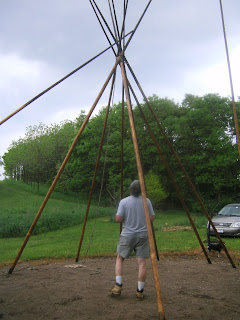Andrographis (Annual): fights common cold, flue, and upper respiratory infections.
Angelica (Perennial): treats cold and flu, warms the body, and aids in digestion
Anise Hyssop (Perennial): relieves congestion and indigestion, soothes and relaxes
Apricot Sprite Agastache (Perennial): wonderful aroma; use in tea and other beverages
Arnica montana (Annual): topical anti-inflammatory, used in homeopathy
Ashwaganda (Perennial): treats joint and nerve pain, insomnia, infertility
Astragalus (Perennial): strengthens digestion and immune system, raises metabolism
Balloon Flower (Perennial): cough remedy, young foliage can be added to salads
Basil (Annual): anti-oxidant, anti-cancer, anti-viral, anti-microbial properties
Bergamot (Perennial): stimulant in tea, antiseptic, poultices for wounds, mouthwash
Betony (Perennial): relieves headaches, soothes aching joints (topical), general tonic action
Blessed Thistle (Annual): Eases lactation in nursing mothers, good for digestion, anti-cancer
Blue Flax (Perennial): relieves rheumatic pains, diarrhea and coughs
Boneset (Perennial): enhances immune system, helps with fevers and flu
Borage (Annual): Herb of Gladness, exilerating, lowers fever and decongests the lungs
Calendula (Annual): potent healing properties, anti-inflammatory, externally treats burns and bruises
Catnip (Perennial): treatment of colds, flu and fevers, upset stomach and insomnia, gently relaxing
Celandine (Perennial): treats warts and corns, stomach pains, anti-cancer properties
Chamomile (Perennial): provides relief from anxiety, headache, cold and flu, and digestive complaints
Chinese Wolfberry/Goji berry (Perennial): anti-oxidant, immune booster, vision & cardiac disorders
Clary Sage (Perennial): relaxant for nervous disorders; relieves sore throat, gas and indigestion
Comfrey (Perennial): promotes healing of bones; currently it is suggested to avoid internal use
Echinacea (Perennial): strengthens and stimulates digestion and the immune system
Elecampane (Perennial): quiets coughs, stimulates digestion, tones the stomach
Fennel (Perennial): relieves congestion and abdominal pain caused by gas and indigestion
Fenugreek (Annual):Increases milk production in lactating women, anti-viral, relieves arthritis pain
Feverfew (Perennial): treats colds and digestive problems and it great for headaches, esp. migraines
Foxglove, purple (Biennial): source of digitalis; do not use without medical supervision
Gayfeather (Perennial): used for kidney diseases and to relieve sore throat
Horehound (Perennial): provides relief from cough, and aids in treatment of chronic lung problems
Hyssop (Perennial): relieves sore throat, congestion, colds & flu, and aids in treating chronic bronchitis
Jacob's Ladder (Perennial): relieves nervous complaints, headaches and heart palpitations
Lady's Mantle (Perennial): good for menstrual disorders, lack of appetite, rheumatism, stomachache
Lavender (Perennial): antiseptic and anti-inflammatory, soothes insect bites, soothes headaches
Lemonbalm (Perennial): stimulates heart and calms nerves
Lion's Tail (Perennial): small shrub, treats fevers, headaches, flu, hypertension; anti-inflammatory
Lovage (Perennial): woman's tonic, increases energy, relieves indigestion, colds and flu
Maralroot (Perennial): Siberian plant with remarkable metabolic and tonic effects
Marjoram (Annual): oil used for sprains and bruises, emmenagogue
Marshmallow (Perennial): relieves coughs and is used to aid treatment of diabetes and tuberculosis
Meadow Clary (Perennial): wonderfully aromatic, calms and relaxes
Milk Thistle (Biennial): remedy for liver diseases
Motherwort (Perennial): good for PMS, menstrual pain and delay in menstruation, strengthens heart
Mugwort (Perennial): eases feelings of unease and general malaise; used in moxibustion
Ox-Eye Daisy (Perennial): relieves chronic cough, asthma and nervous excitabilitiy
Pennyroyal (Perennial): used in aromatherapy, good insect repellant
Pleurisy Root (Perennial): treats cold, flu, fever and congestion
Pyrethrum (Perennial): insecticidal properties, good companion plant to repel insects
Rue (Perennial): lowers blood pressure and relieves aches and pains. Do not take in large doses
Sage, Garden (Perennial): gargle tea to relieve sore throat, woman's tonic herb
Shungiku Edible Chrysanthemum (Annual): rich in vitamins, minerals and anti-oxidants
Skullcap (Perennial): calms and relaxes, induces sleep, and relieves headaches
Soapwort (Perennial): crushed leaves or roots used as a soap, cleaning delicate fabrics, shampoo
St. John's Wort (Perennial): relieves depression, especially in children and teens
Sunset Flower/Mexican Butterfly Weed (Perennial): clots wounds, wart removal, treats poison ivy
Sweet Annie (Annual): anti-malarial, anti-cancer, anti-parasite; traditionally used for fevers; strewing
Sweet Marigold (Tagetes lucida) (Annual): similar to tarragon; makes a stimulating tea, strewing herb
Sweet Woodruff (Perennial): gentle sedative, flavors wines and spirits, popular potpourri scent
Tansy (Perennial): promotes menstruation and is applied externally to injuries and bruises
Thyme (Perennial): soothes cough and sore throat, aids in treatment of asthma and digestive problems
Toothache Plant (Annual): numbs toothaches, treats dry mouth, smooths facial wrinkles, anti-diabetic
Valerian (Perennial): acts as a calming sedative and relieves pain and cramps
Vervain (Perennial): use for fevers, ulcers, pleurisy; anti-sposmatic, astringent
Wallflower (Perennial): fragrant golden flowers good in potpourris
Winter Savory (Perennial): topical treatment for joint pain
Wormwood (Perennial): treats arthritis, relieves itching from rashes, and regulates liver
Yarrow (Perennial): improves digestion, circulation, and functions of the liver, gall bladder & kidneys











